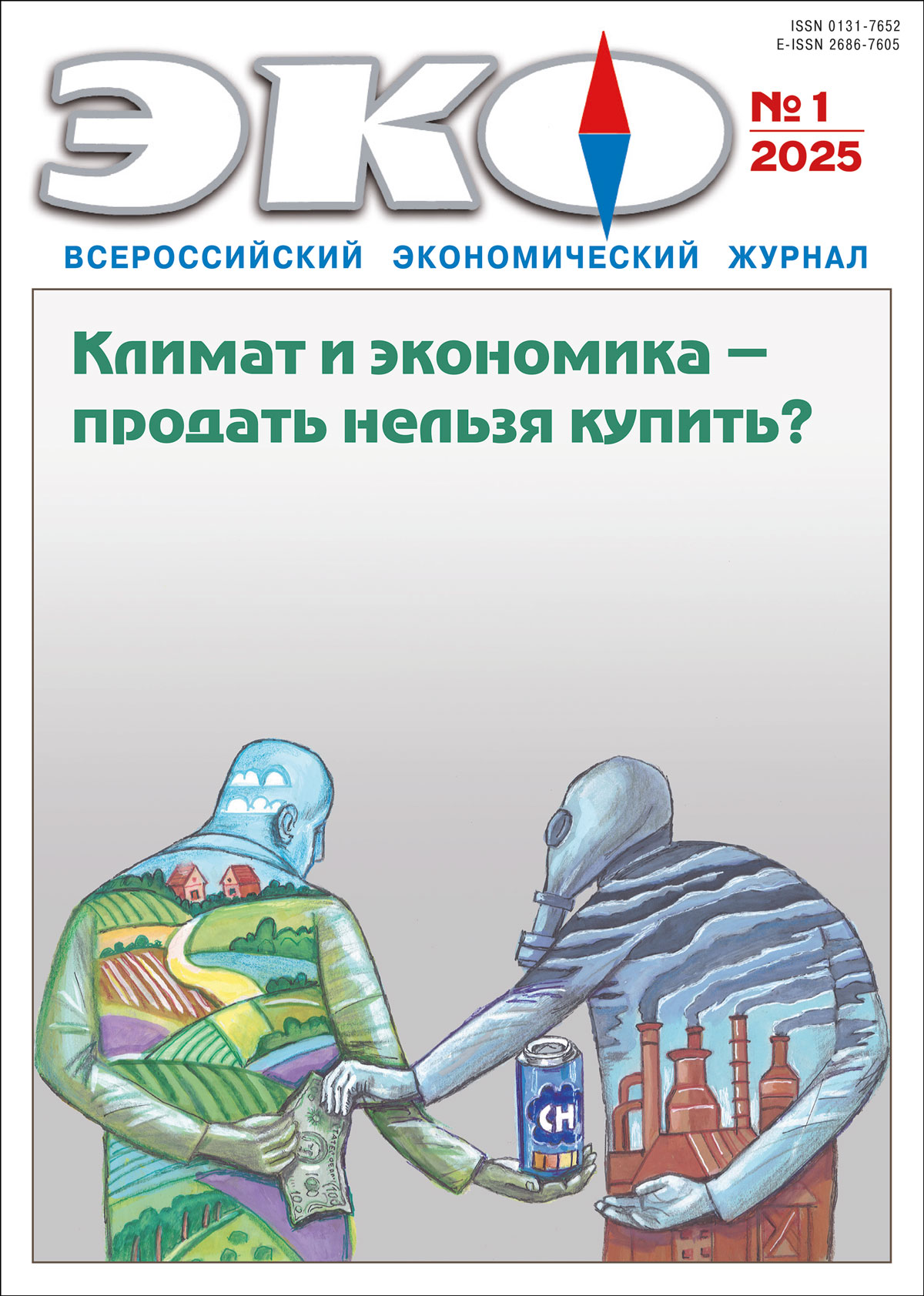Cover story: Climate and economics – can’t sell / buy?
Published 2025-01-30
Keywords
- carbon credits; carbon offsets; greenhouse gas emission tax; carbon exchanges; climate projects; Paris Climate Agreement; Singapore
How to Cite
1.
Kopytin И, Reznikova О. Carbon Credits in Singapore’s Climate Strategy. ECO [Internet]. 2025 Jan. 30 [cited 2026 Jan. 27];55(1):35-44. Available from: https://ecotrends.ru/index.php/eco/article/view/4815
Abstract
Singapore’s National Climate Strategy aims to transform the country into a regional and global hub for the export of environmental services, including carbon credit trading. The strategy is aimed at maintaining Singapore’s position as one of the world’s centers of manufacturing industry, which is the country’s largest emitter of greenhouse gases. While Singapore has already largely exhausted its renewable energy options, industrial companies see carbon credits as an important tool for decarbonization and demethanization. In parallel, Singapore is actively involved in scaling up the global carbon credit trade. In various scenarios Singapore’s added value from carbon trading services could reach $1.8–$5.6 billion by 2050.References
- Жуков С.В., Резникова О.Б. Энергетический переход в США, Европе и Китае: новейшие тенденции // Проблемы прогнозирования. 2023. № 4(199). С. 15–31. DOI: 10.47711/0868–6351–199–15–31
- Carvalho, M., Alvarez Campo, C. and Tewari, R. (2021). Study of Singapore as a Carbon Services Hub – Key Findings. South Pole Carbon Asset Management Ltd. (South Pole), Switzerland.
- Su. B., Ang, B.W., Li, Y. (2017). Input-output and structural decomposition analysis of Singapore’s carbon emissions. Energy Policy. Vol. 105. Pр. 484–492. https://doi.org/10.1016/j.enpol.2017.03.027
- Liu, Y., Dong, L., Fang, M.M. (2023). Advancing ‘Net Zero Competition’ in Asia Pacific under a dynamic era: a comparative study on the carbon neutrality policy toolkit in Japan, Singapore and Hong Kong. Global Public Policy and Governance. No. 3. Pp. 12–40. https://doi.org/10.1007/s43508–023–00065–2
- Chester, C.B. (2024). Exploring Singapore’s Recent Carbon Credits Initiatives. Cambridge Climate Society Research Journal, Forthcoming. Available at SSRN: https://ssrn.com/abstract=4703930 or http://dx.doi.org/10.2139/ssrn.4703930
- Lau, H.C. et al. (2021). A Decarbonization Roadmap for Singapore and Its Energy Policy Implications. Energies. Vol. 14. Issue 20. 14, 6455. https://doi.org/10.3390/en14206455
- McGreevy, M., Chia, E.S. (2023). Sustainability transitioning in a developmental state: an analysis of Singapore’s climate change mitigation and adaptation policies. Climate and Development. Pp.1–17. https://doi.org/10.1080/17565529.2023.2229779

